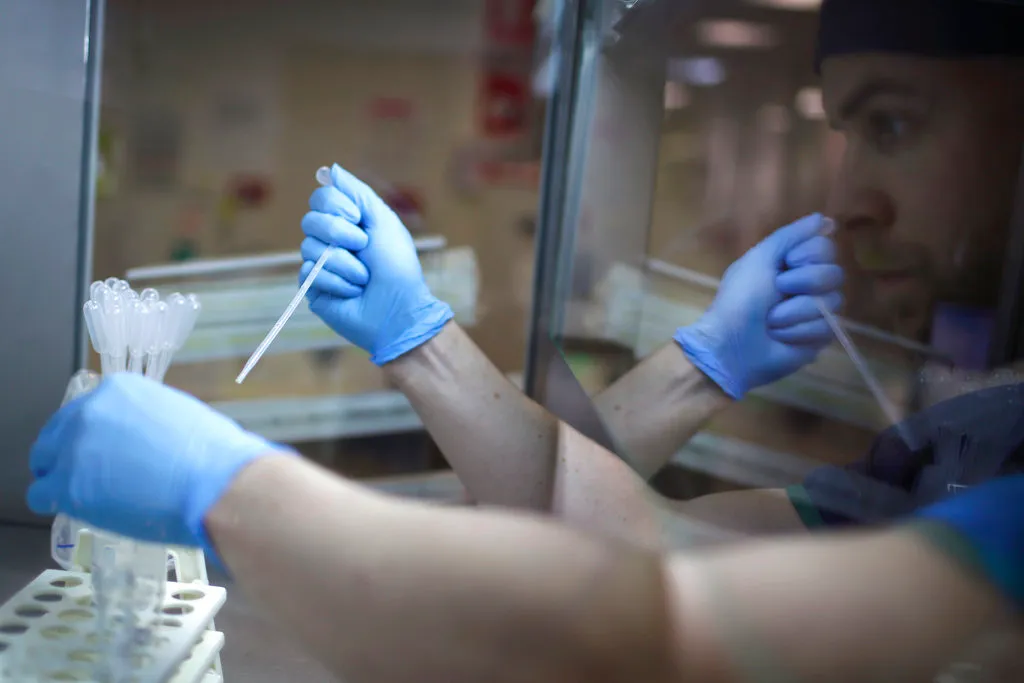Copyright St. Paul Pioneer Press

To place an obituary, please include the information from the obituary checklist below in an email to obits@pioneerpress.com. There is no option to place them through our website. Feel free to contact our obituary desk at 651-228-5263 with any questions. General Information: Your full name, Address (City, State, Zip Code), Phone number, And an alternate phone number (if any) Obituary Specification: Name of Deceased, Obituary Text, A photo in a JPEG or PDF file is preferable, TIF and other files are accepted, we will contact you if there are any issues with the photo. Ad Run dates There is a discount for running more than one day, but this must be scheduled on the first run date to apply. If a photo is used, it must be used for both days for the discount to apply, contact us for more information. Policies: Verification of Death: In order to publish obituaries a name and phone number of funeral home/cremation society is required. We must contact the funeral home/cremation society handling the arrangements during their business hours to verify the death. If the body of the deceased has been donated to the University of Minnesota Anatomy Bequest Program, or a similar program, their phone number is required for verification. Please allow enough time to contact them especially during their limited weekend hours. A death certificate is also acceptable for this purpose but only one of these two options are necessary. Guestbook and Outside Websites: We are not allowed to reference other media sources with a guestbook or an obituary placed elsewhere when placing an obituary in print and online. We may place a website for a funeral home or a family email for contact instead; contact us with any questions regarding this matter. Obituary Process: Once your submission is completed, we will fax or email a proof for review prior to publication in the newspaper. This proof includes price and days the notice is scheduled to appear. Please review the proof carefully. We must be notified of errors or changes before the notice appears in the Pioneer Press based on each day’s deadlines. After publication, we will not be responsible for errors that may occur after final proofing. Online: Changes to an online obituary can be handled through the obituary desk. Call us with further questions. Payment Procedure: Pre-payment is required for all obituary notices prior to publication by the deadline specified below in our deadline schedule. Please call 651-228-5263 with your payment information after you have received the proof and approved its contents. Credit Card: Payment accepted by phone only due to PCI (Payment Card Industry) regulations EFT: Check by phone. Please provide your routing number and account number. Cash: Accepted at our FRONT COUNTER Monday – Friday from 8:00AM – 3:30PM Rates: The minimum charge is $162 for the first 10 lines. Every line after the first 10 is $12.20. If the ad is under 10 lines it will be charged the minimum rate of $162. On a second run date, the lines are $8.20 per line, starting w/ the first line. For example: if first run date was 20 lines the cost would be $164. Each photo published is $125 per day. For example: 2 photos in the paper on 2 days would be 4 photo charges at $500. Deadlines: Please follow deadline times to ensure your obituary is published on the day requested. Hours Deadline (no exceptions) Ad Photos MEMORIAM (NON-OBITUARY) REQUEST Unlike an obituary, Memoriam submissions are remembrances of a loved one who has passed. The rates for a memoriam differ from obituaries. Please call or email us for more memoriam information Please call 651-228-5280 for more information. HOURS: Monday – Friday 8:00AM – 5:00PM (CLOSED WEEKENDS and HOLIDAYS) Please submit your memoriam ad to memoriams@pioneerpress.com or call 651-228-5280. This month, President Donald Trump released new federal guidance encouraging private employers to include fertility treatments in their insurance coverage and announcing an agreement to reduce the cost of some IVF-associated drugs. For those dealing with the disheartening struggles of infertility, this is good news. Republican Sen. Katie Britt said it was the “most pro-IVF thing that any president in the history of the United States of America has done.” But from a regulatory perspective, it’s more gas in a car without a steering wheel. We barely have regulations on the books about IVF. Yet IVF is the opening gate for a new world of reproductive technologies, ethical quagmires and designer babies. It is already standard practice at American fertility clinics, for example, to screen embryos for gender and disease. But new Silicon Valley companies such as Orchid are taking it one step further, quite literally scraping off genetic material from embryos to allow for a full gamut of embryo comparisons, including disease probabilities but also things like BMI, depression risk, hair color and more. Ethical quagmire aside: Who wouldn’t want to implant the healthiest, strongest, happiest embryos? It’s the ultimate MAHA move; improving the health of your child before they are even in the womb. Investors also see the appeal. More than $1 billion has been poured into fertility start-ups in the last decade, according to the New York Times. But this, too, is only the beginning. Soon it may not only be selecting the healthiest embryos to implant, but altering them — and thus all future generations. Already, scientists are able to go into the genome itself to alter disease-carrying genes. This year, a Pennsylvania baby was the first human patient ever to undergo gene editing therapy to treat a life-threatening genetic disorder. Nothing short of miraculous. Scientists are on the brink of even preventing some diseases — not just treating them — at the sperm, egg and early embryo stage, with technology called germline editing. The catch is that this procedure permanently genetically modifies the person and all of their future offspring: the generational consequences of which remain unknown. China’s already waded into this murky water. It’s the sci-fi of tomorrow. Forget the rich paying off Ivy League schools to let their children in; we’re not so far away from designing embryos who can get in on their own (engineered) genius. Which raises all sorts of questions, some of which were on display in a recent Free Press debate, “Is designing babies unethical or a moral imperative?” Observing it, I was struck by how unwittingly the debate still hinged around President Bill Clinton’s abortion framework from 30 years ago: safe, legal and rare. (And what a time we’ve had holding onto something as seemingly simple as that.) Safe, because when we think about “designer babies” we tend to think of eliminating disease and negative health outcomes. But in the debate, Lydia S. Dugdale, a physician and ethicist at Columbia University, emphasized the complexity of the human genome. She questioned whether germline editing will ever be completely safe given the endless potential interactions and unseen consequences of toggling inheritable genes — not to mention the “safety” of the unchosen embryos left indefinitely on ice. Legal, because we don’t have the best track record when it comes to regulating reproductive technologies. It’s mostly been a free-for-all for IVF. The regulatory landscape for abortion is one of extremes that don’t reflect public opinion, which tends to be pro-choice during the first trimester with a sharp drop-off after. But “rare” seems to be the public sticking point around the morality of reproductive technologies. Polling from Pew Research confirms a general public wariness of using any new technologies to create “superhumans.” For example, only 5% of Americans support their use for making a baby more physically attractive. There’s more openness to germline editing if it’s therapeutic, medicinal in the traditional sense; but even then, public opinion is closely divided (30% for, 30% against) with the largest category of people being “unsure” (40%). Most (84%) believe that germline editing will end up being used in morally questionable ways, even if it’s used in good ways too. This quandary was on full display in the aforementioned debate. Allyson Berent, a veterinarian and chief science officer at the Foundation for Angelman Syndrome Therapeutics (FAST), spoke of her daughter born with Angelman syndrome, a devastating diagnosis for which there is no cure. The disease is caused by a single gene, which if altered would fully eliminate the disease. Her debaters warned of a slippery slope. How the same technology used for seemingly clear-cut, medicinal reasons for very specific outlier diseases could also be used to select desirable traits. But the audience, in the end, shifted in Dr. Berent’s direction, with 35% believing that designer babies are not only ethical, but a moral imperative. We are people with bleeding human hearts. When it comes to reproductive technologies, in a culture that celebrates freedom and self-actualization while increasingly eschewing ancient moral restraints, sympathy-inducing individual stories have a way of making regulatory lines seem arbitrary, or even cruel. But I can’t help but think that holding some type of line still matters. The obvious one is allowing a little bit of scientific tampering for therapeutic, but not cosmetic, reasons. Yet we’ve already moved past this in IVF (by letting parents choose the baby’s sex). The therapeutic line will always be an ambiguous one, as we’ve seen with the furious debate over medical exceptions to abortion bans. No wonder many people are simply unsure of what to think about the gene editing technologies on our doorstep, whether it’s a good idea or bad idea for society to have this power. Which means that we’re likely to keep barreling ahead with the democratization of new technologies and the opportunities that they create. The hard ethical questions will wait on ice — maybe indefinitely. Abby McCloskey is a columnist, podcast host, and consultant. She directed domestic policy on two presidential campaigns and was director of economic policy at the American Enterprise Institute. She wrote this column for Bloomberg Opinion.



